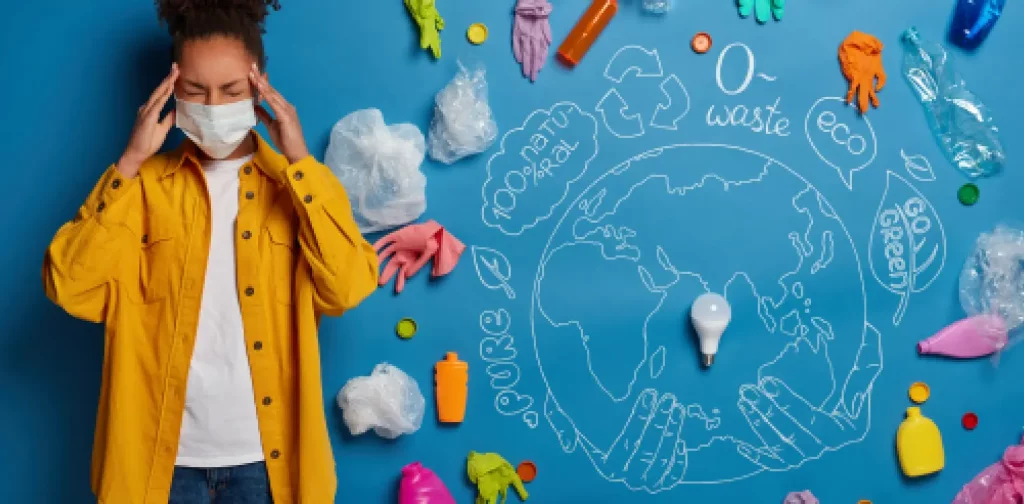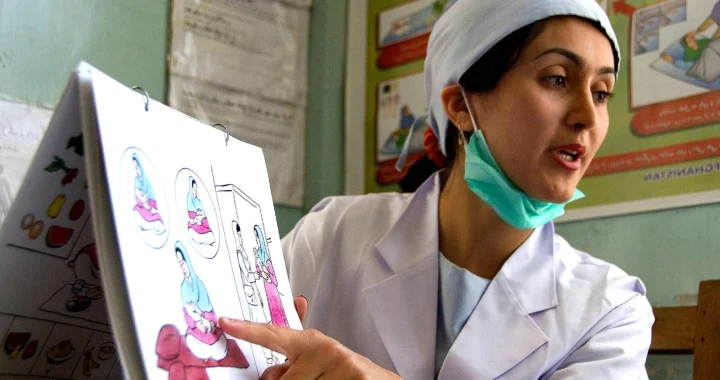Climate Change and Mental Health: How to handle eco-anxiety

Photo: wayhomestudio on Freepik
Facing the climate crisis is not easy. People are becoming more aware of climate change and its impacts, most likely because they’re experiencing it firsthand. It has also become clearer that climate change and mental health are connected. Whether actively fighting to halt climate change or just living through it, it can take a toll on your mental wellbeing. Many are struggling with eco-anxiety and other psychosocial problems. So, how can we take care of our mental health amidst the climate crisis?
Climate Change and Mental Health
Climate change has caused and exacerbated extreme weather events worldwide, such as droughts, floods, hurricanes, and wildfires. The destruction, loss, and displacement they cause can be traumatizing, leading to PTSD, anxiety, and depression.
The Intergovernmental Panel on Climate Change (IPCC) AR6 report states, “Children and adolescents are particularly vulnerable to post-traumatic stress after extreme weather events, and increased susceptibility to mental health problems may linger into adulthood.”
The report also explores other factors that affect our mental wellbeing. For instance, exposure to prolonged heat and pollution has also resulted in cases of suicide, psychiatric hospital admissions, mental disorder emergencies, anxiety, depression, and acute stress. Furthermore, mental health issues may emerge from indirect impacts of climate change, such as food insecurity and economic impacts experienced by farmers because of droughts.
Eco-anxiety, Eco-grief, and More
People who have not personally been experiencing the extreme impacts of climate change also feel the mental toll. Climate change activists and climate scientists are likely to experience severe burnout and despair about the lack of progress toward sustainability.
Simply observing how the climate crisis unfolds and feeling the threat of it can result in anxiety, often called eco-anxiety or climate anxiety. There is also eco-grief, which is more about the overwhelming sadness from witnessing environmental destruction and how it affects everything. This problem is rising, especially among young people who might feel that they have no control over their future on this planet, leading to anger, hopelessness, or paralysis.
A study involving 10,000 young people aged 16 to 25 across 10 countries reveals that nearly 60% feel ‘extremely worried’ about climate change. Dr. Sanae Okamoto, a researcher in behavioral science and cognitive neuroscience, elaborates, “The study shows large numbers of young people globally regard governments as failing to address or act on the climate crisis in a coherent, urgent way, expressing that they feel betrayal and abandonment both individually and on behalf of future generations.”
Eco-anxiety is a normal and common response to the climate crisis. For most, the anxiety does not reach a dangerous level. However, it can still shape our views and behaviors, like the way young people factor their eco-anxiety into their decisions to have children or not.
Taking Care
While climate change is an urgent issue, caring about it doesn’t mean we should neglect our wellbeing. So, how do we take care of our mental health amidst the climate crisis?
- Do what you can do. It’s important to remember that while we all have a role in fighting climate change, the responsibility is not equal. Businesses and governments bear the biggest load in this. As an individual citizen and consumer, you can only do what you can on a small scale, and that’s fine. Your collective voice, market demand, and consumer behavior can still help push for changes toward more sustainable practices all around.
- Reframe your mindset toward solidarity. Humans and nature are resilient; you don’t need to be a savior who stops the climate crisis. While ‘save the planet’ is a common slogan, reframing your mindset so that you become a part of this planet and society working together can be helpful to your mental load.
- Watch your media consumption. “Doom-scrolling” on social media, news of disasters around the world, and reports of environmental decline are ways to keep yourself informed on climate change issues. However, you should balance the negative input with the positive. At all times, scientists, activists, and others like you are doing their best to tackle climate change challenges. You are not alone.
- Join a community. Becoming a part of a community within your localization will help create a bigger real-life impact on a more specific issue. This also serves as a constant reminder of what you’re fighting for and that you are not alone in your efforts and struggles.
- Seek professional help if needed. Mental health support still needs a lot of improvement worldwide, but seeking help from loved ones or mental health professionals should be prioritized when necessary and possible. Besides for your own wellbeing, it can also better equip yourself to help create a better future for people and the planet.

Co-create positive impact for people and the planet.
Amidst today’s increasingly complex global challenges, equipping yourself, team, and communities with interdisciplinary and cross-sectoral insights on sustainability-related issues and sustainable development is no longer optional — it is a strategic necessity to stay ahead and stay relevant.


 Systemic Shift to Enable Healthy School Food Environments
Systemic Shift to Enable Healthy School Food Environments  Looking into the Global Midwife Shortage
Looking into the Global Midwife Shortage  Reframing Governance in the Era of Water Bankruptcy
Reframing Governance in the Era of Water Bankruptcy  Strengthening Resilience amid Growing Dependence on Space Infrastructure
Strengthening Resilience amid Growing Dependence on Space Infrastructure  Indian Gig Workers Push Back Against 10-Minute Delivery Service Strain
Indian Gig Workers Push Back Against 10-Minute Delivery Service Strain  Call for Governance: Grassroots Initiatives Look to Scale Efforts to Conserve Depleting Groundwater
Call for Governance: Grassroots Initiatives Look to Scale Efforts to Conserve Depleting Groundwater